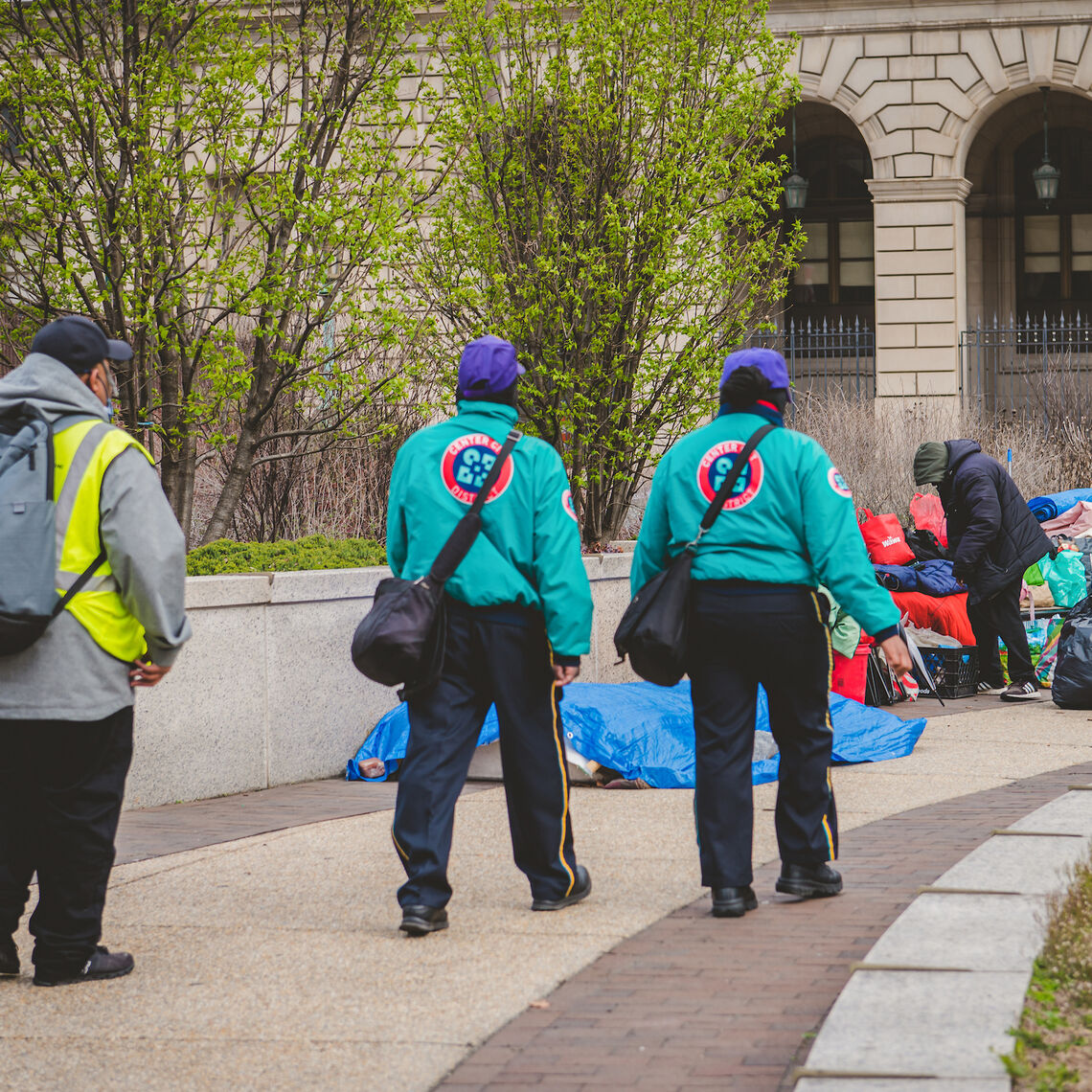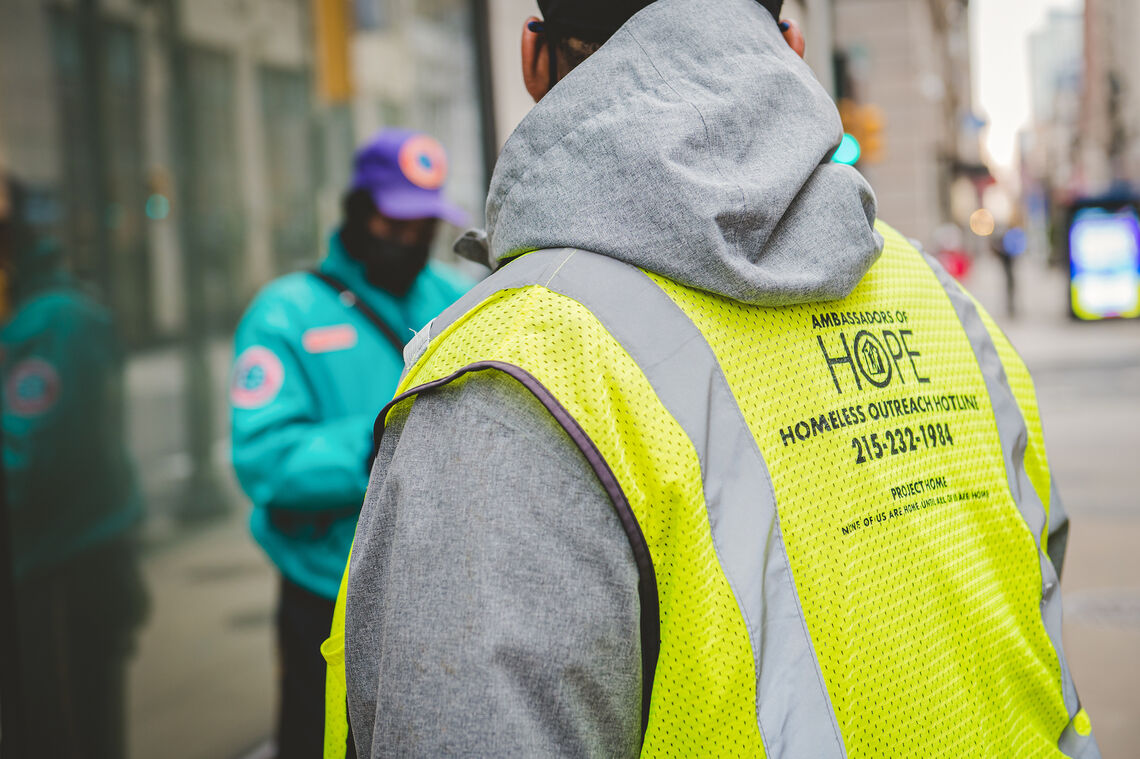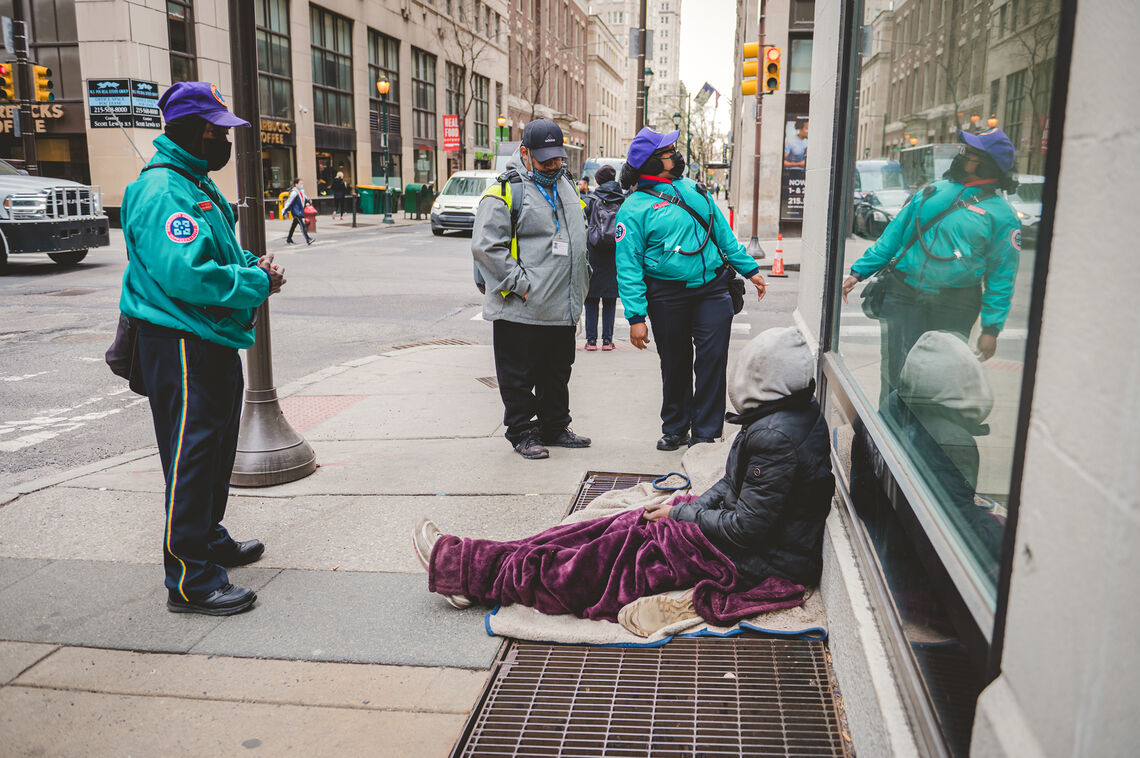
blog
Ambassadors of Hope: Reducing Homelessness in Center City with Compassionate Outreach
Across the country, the homelessness epidemic has been a challenge for communities of all sizes. According to the U.S. Department of Housing and Urban Development’s 2020 PIT Estimates of Homeless report, over 580,000 individuals in 2019 experienced homelessness across the country. To face this crisis on a local level, Center City District (CCD) established the Ambassadors of Hope program.
The Ambassadors of Hope
Starting in the spring 2018, a 30-week pilot program was funded and coordinated by CCD in partnership with Project HOME and the Philadelphia Police Department, with strong support from the City of Philadelphia’s Department of Behavioral Health.
In its first year, 130 individuals experiencing homelessness chose to accept help from the team and enter programs for social services, mental health, and housing. That first year, Center City District’s team provided transportation for 55% of those individuals, a key benefit unique to the program that made the assistance more accessible than ever before.
Each year, the program has expanded, adding a second team in 2019, a mental health outreach worker from Penn Medicine in 2021, and is currently in the process of forming a third outreach team.
From Their Perspective: Hearing from Our Ambassadors
Each team is composed of three key individuals: a Project HOME outreach worker, a crisis-intervention trained Philadelphia Police Officer, and a Center City District Community Service Representative (CSR). To learn more about what this work entails on a daily basis, we talked to Mr. Robert Savage, one of our team members who joined CCD as a CSR in 2011 and later joined the Ambassadors of Hope team.

For Robert, joining the Ambassadors team wasn’t completely dissimilar to his role as a CSR: “Not that I wasn’t doing this work before, but when you join the outreach program, you zero in on that with a little bit more detail, sort of like a surgeon would do… You have your medical doctors, then you have your surgeon focused in specific areas. So working with the homeless became my ‘surgical area.’”
In this role, the Ambassadors are working with all types of people from all walks of life. No matter their background—whether they’re a college student or a blue-collar worker experiencing a rough patch—Robert notes that his job is to support those he meets and find out the next step of what they want to do with their lives. “I try to let them know: you're a person, you're a human being, and you mean something to me. I try to help bring them up by their bootstraps.”
For him, this work is more than just a job; it ties to the missionary work his mother would do. “In my case, it fell into my hands that I take to the streets. That's my hospital; that's my shelter… My mother was a missionary in my church. She would visit the sick and the shut-in. So these people that I see on the street are like that. They may not be shut in, but they're shut out. They're outside and they have to be given attention, to show them that there is someone out there thinking about them.”

Helping People, One Day at a Time
From the diligent work done by the Ambassadors of Hope team members like Robert, over 800 individuals in the past five years have been helped off the streets to get help. This help takes many forms, based on individual needs, but includes showers, clothing, food, shelter, mental health counseling, and medical attention.
This past summer and fall alone, more than 170 unsheltered clients accepted services, with over 90% of all those individuals served accepting transportation in CCD vans to make the transition more doable, since Robert notes that some of those they serve are unable to walk or may have baggage that they cannot carry. Also noteworthy is that over 50% of the total individuals served were chronically homeless and had previously resisted help and placement.
And from Robert’s perspective, the greatest reward is seeing those individuals who resisted getting help, finally accepting it and changing their lives for the better:
“I had a guy walk up to me, someone I hadn't seen him in a while. His name was Franklin, and he saw me and hugged my neck. He said, ‘I just want you to know, I want to thank you for not giving up on me. You never let it go. I've moved on to the next step; I have a part time job, I got cleaned up, I have an apartment in South Philadelphia, and I'm presently going to school to be a chiropractor. I just want you to know, you mean a lot to me.’”
Support the Work Done by the Ambassadors of Hope
Our 2023 Winter Outreach Program begins on January 2 and operates through April 7. Without the support of partners through the Center City District Foundation (CCDF), this life-changing work would not be possible. Donate today to help continue this successful program that benefits not only the residents, businesses, and visitors of Center City, but also the individuals trying to make better lives for themselves.